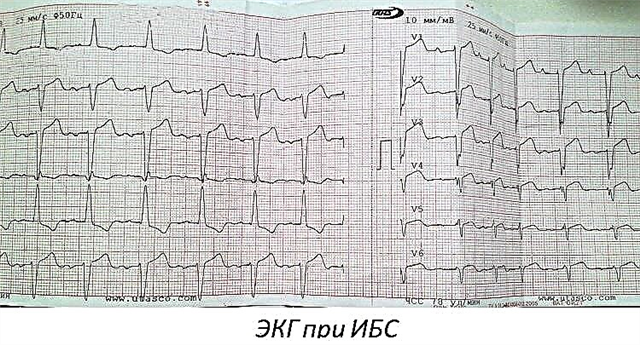Hearing loss in children is a very serious problem that becomes more acute every year. Unfortunately, environmental conditions continue to deteriorate rapidly, as does the quality of food. All this affects the human genetic apparatus and leads to an increase in the number of congenital hearing pathologies in children. But acquired sensorineural hearing loss in children continues to occur more and more often. And if you do not pay attention to this disease in time, the consequences can be very serious, up to complete hearing loss.
Types of hearing loss in children
 Modern medicine distinguishes between three main types of hearing loss in children:
Modern medicine distinguishes between three main types of hearing loss in children:
- Hereditary - passed down from parents or through a generation. It is caused by damage to the genetic apparatus of one or both parents. If only one of the parents suffers from congenital hearing impairment, the chances of having a healthy baby are quite high. But when both parents have the same problem, the possibility that the child will develop hearing loss tends to 100%. Therefore, such couples should take a DNA test before planning a pregnancy.
- Congenital - when a child with a hearing impairment is born to healthy parents. Most often this happens due to problems that arose during pregnancy or negative factors affecting the fetus. That is why it is important for the expectant mother to register as early as possible and follow all the doctor's recommendations up to the birth of the baby.
- Acquired - when the hearing loss in a healthy baby is due to injury or other reasons. This type of condition is usually the easiest to treat, unless hearing loss is due to a serious head or ear injury. The sooner the disease is detected and treatment is started, the higher the likelihood that hearing will recover completely.
Each type of disease has its own characteristics and causes. So, hereditary hearing loss is not treatable. It can only be compensated for if necessary with hearing aids or hearing aids.
 In most cases, with 3-4 degrees of hereditary hearing loss, the child has to be placed in a specialized institution, in which qualified specialists will help him socially adapt and master the skills of deaf speech.
In most cases, with 3-4 degrees of hereditary hearing loss, the child has to be placed in a specialized institution, in which qualified specialists will help him socially adapt and master the skills of deaf speech.
In some cases, congenital hearing loss can be cured. It all depends on the reasons for its manifestation. If the hearing impairment is caused by an underdeveloped hearing aid, surgery can solve the problem. But when the auditory nerve or the part of the brain responsible for sound processing is damaged, it is no longer possible to significantly help the baby.
Therefore, as soon as a child's hearing loss is detected, the causes must be determined with the help of the most thorough comprehensive examination.
Diagnosis and symptoms of hearing loss
 Determining hearing loss in newborns is especially difficult. During the first month of life, the child's hearing system is still developing, and he often does not actively respond even to loud sounds. But by the second month of life, a waking baby begins to take an interest in what is happening and actively listen to human speech and other sounds.
Determining hearing loss in newborns is especially difficult. During the first month of life, the child's hearing system is still developing, and he often does not actively respond even to loud sounds. But by the second month of life, a waking baby begins to take an interest in what is happening and actively listen to human speech and other sounds.
It is worth raising the alarm if the parents notice that the 2-3 month old baby:
- does not respond to the voices of parents;
- does not turn the head towards a sound source that is invisible to him;
- is not afraid of noise from falling objects or harsh sounds;
- does not wake up from loud noise.
Even with one of these symptoms, it is urgent to show the baby to the otolaryngologist. Every week of delay threatens the most serious consequences, the worst of which is speech impairment. When a child does not hear well, he cannot clearly distinguish sounds and, moreover, is not able to reproduce them correctly.
 After 3-4 years of age, the symptoms of hearing loss in children are much easier to detect. Especially in the case of acquired pathology that develops after an injury or illness. Usually such children already speak well enough and actively communicate with adults and peers. The problem is obvious when the baby:
After 3-4 years of age, the symptoms of hearing loss in children are much easier to detect. Especially in the case of acquired pathology that develops after an injury or illness. Usually such children already speak well enough and actively communicate with adults and peers. The problem is obvious when the baby:
- asks to make the TV louder;
- begins to constantly ask again;
- does not respond and does not turn his head to the call;
- has difficulty repeating new words or phrases.
If you do not react to these symptoms immediately, the disease will progress. Unfortunately, most often doctors diagnose already grade 2 hearing loss in a child, although it would have healed faster in the first initial stage.
Degrees of hearing loss
 In total, the disease has 4 degrees, which differ in the range of perceived sounds. Hereditary or congenital hearing loss usually does not progress. And the acquired disease, in the absence of adequate treatment, is actively developing and, in extreme cases, leads to complete deafness.
In total, the disease has 4 degrees, which differ in the range of perceived sounds. Hereditary or congenital hearing loss usually does not progress. And the acquired disease, in the absence of adequate treatment, is actively developing and, in extreme cases, leads to complete deafness.
- Grade 1 (mild) - diagnosed when the auditory threshold is reduced to 25-40 dB. It is most difficult to notice it, since the child has difficulty hearing only whispers and soft sounds. He normally perceives loud speech and can speak clearly.
- Grade 2 (medium) - characterized by a hearing loss of up to 40-55 dB. The kid hears speech well from a distance of less than 4 meters, does not understand a whisper, does not perceive fast speech.
- Grade 3 (severe) - hearing decreases to 55-70 dB. The child hears normal speech only at close range, has great difficulty in pronouncing sounds, and is poorly oriented in the surrounding space. Hearing compensation with a hearing aid is required.
- Grade 4 (very severe) - the auditory threshold is reduced to 70-90 dB. The kid hears only very loud sounds, does not understand speech at all. Most often, such children are able to adapt only in special institutions.
With 3-4 degrees of hearing loss, after providing the medical history and other necessary documents, the child is assigned a hearing disability, which can be removed if the hearing is restored.
Disease prevention
 It is always best if such an important event as pregnancy is planned in advance. Especially if the expectant mother has hereditary or serious chronic diseases, for example:
It is always best if such an important event as pregnancy is planned in advance. Especially if the expectant mother has hereditary or serious chronic diseases, for example:
- diabetes;
- thyrotoxicosis;
- anemia or vitamin deficiency;
- any type of hepatitis;
- sexually transmitted infections;
- disruption of the immune system.
In the event that the pregnancy turned out to be unplanned, it is worth undergoing genetic tests as soon as possible, which will help identify congenital abnormalities of the fetus. The same will have to be done if the pregnant woman had to take potent drugs or antibiotics, especially in the first trimester.
A child with hearing impairment can be born to a woman who works in hazardous work or abuses alcohol and cigarettes. Sick children are almost always born to parents who are drug addicts (even if they have already stopped taking drugs, but have been using them for a long time).
Only proper care and attentive attitude of parents can save a baby from acquired hearing loss. A child, especially in the first year of life, should receive normal nutritious nutrition and timely treatment in case of illness with any viral and / or infectious diseases.
It is very important from an early age to explain to the baby that it is dangerous to stick toys and other small objects into the nose and ears. And you can't leave small children unattended.



